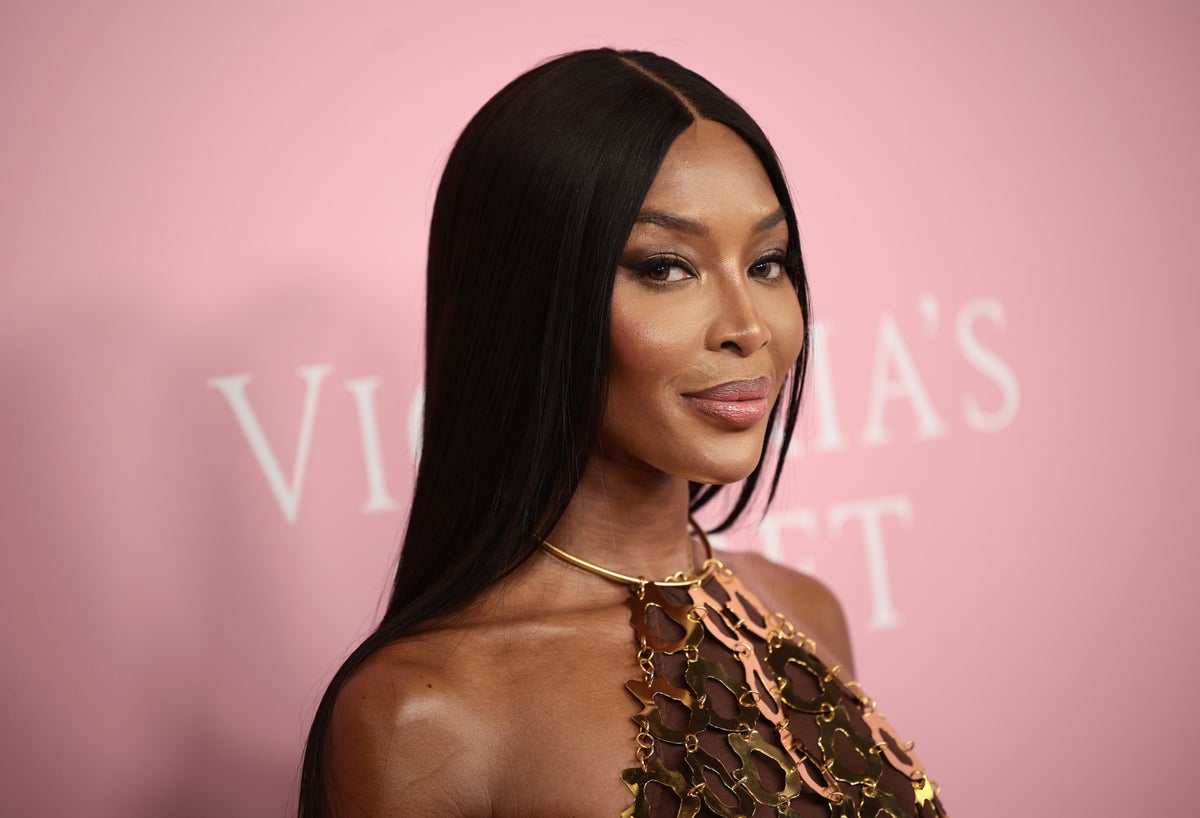
Naomi Campbell has reflected on the racism she faced early on in her modelling career.
The supermodel, 53, spoke about some of her experiences in the fashion industry in the upcoming Apple TV+ documentary, The Super Models, which also features modelling legends Cindy Crawford, Linda Evangelista, and Christy Turlington. During one episode of the show, which will premiere on 20 September, Campbell reflected on growing up in the UK, beforing moving to the US when she was still a child.
According to US Weekly, she said that although she experienced racism as a child, such as when she was five years old and someone called her a racist word, she didn’t let it affect the way she viewed herself.
“I wasn’t going to accept being bullied at school for the colour of my skin,” she said. “My mother was paying my school fees just like everybody else. I had every right to be there, so take your bullying somewhere else, is how I felt.”
Campbell also added that when she moved to New York to pursue modelling, her mother had a few reservations about it.
“At the time, modelling was kind of looked down on in my family. My mother had no idea I was doing any of it,” she said, before noting that she still followed through with her career.
She further detailed that, once she got involved in the fashion industry, her mother warned her about the racism that exists in America, as well as the prejudices towards people of colour in the southern parts of the country.
With those aspects about racism in mind, Campbell became aware of how hard she’d have to work in order to feel comfortable in her career.
“I started to understand culturally that I was going to have to work really hard to feel accepted,” she said. “There was no way I could go back home with my tail between my legs … I was going to go harder and further.”
Per US Weekly, the Apple TV+ show continued with Campbell recalling some of the stereotypes about people of colour that she witnessed as she adjusted to living in New York City during the 80s and 90s.
She shared a specific experience when she and Turlington were getting into a taxi cab, and the driver appeared to assume that she lived in Brooklyn because she was a Black woman.
“I would put my hands out many times on New York City streets, and the taxis would fly by,” Campbell recalled. “Then Christy would put out the hand and they would stop. The guy would be like: ‘I don’t want to go to Brooklyn,’ and I’m like: ‘I’m not going to Brooklyn.’ I was just like, why is he saying that? It didn’t strike me until, you know, Christy would have to stand out in front of me, get me a taxi to get it to work.”
Campbell then shared how her friendship with Turlington grew over time, noting that they lived together throughout the early days of her career. Additionally, Evangelista also expressed how she tried to advocate for Campbell when the British model was discriminated against because of her race.
“Naomi wasn’t always booked to do the shows,” Evangelista said. “I didn’t understand. Naomi, I thought, was more beautiful, had a much more rocking body than I did and a better strut. [I was] like: ‘Why aren’t they booking her?’ I said to them: ‘If you don’t book her, you don’t get me.’”
This isn’t the first time that Campbell has opened up about the racism she faced at the start of career. In a personal essay for CNN Style, published in 2021, she praised Evangelista and Turlington for being “really supportive,” as she “wasn’t being booked for certain shows because of the colour of [her] skin”.
“For whatever reason, those designers simply didn’t use Black girls; I didn’t let it rattle me. From attending auditions and performing at an early age, I understood what it meant to be Black,” she wrote. “You had to put in the extra effort. You had to be twice as good.”
She emphasised that she was “lucky to have Linda and Christy stand up” for her, describing how they told designers that “if they wanted to have them in their show”, they had to book Campbell as well.
“That kind of support was unheard of. I will be forever touched. When I got to walk in those shows, I felt a huge sense of victory, but also gratitude,” she added.
Campbell also acknowledged what she’s learned from both her success and the racial prejudices she’d faced throughout her career.
“I have had my challenges as a Black model, but in many ways I feel like one of the lucky few. If my career has taught me anything, it’s that you can always turn prejudice around, that you should never give up,” she wrote. “Racism is just ignorance.”







